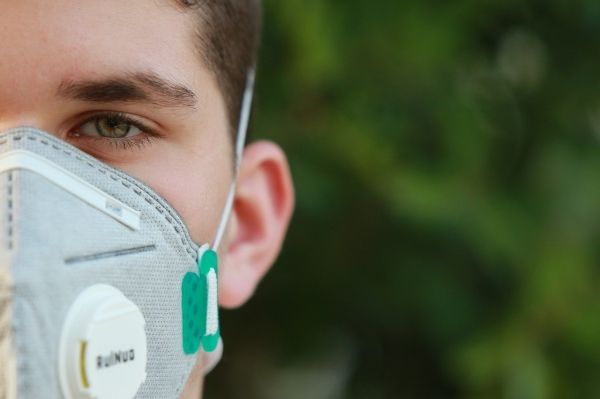Surgical masks may help prevent infected people from making others sick with seasonal viruses, including coronaviruses, according to new research that could help settle a fierce debate spanning clinical and cultural norms.
In laboratory experiments, the masks significantly reduced the amounts of various airborne viruses coming from infected patients, measured using the breath-capturing “Gesundheit II machine” developed by Dr. Don Milton, a professor of applied environmental health and a senior author of the study published April 3 in the journal Nature Medicine.
Milton has already conferred with federal and White House health officials on the findings, which closely follow statements this week from the head of the Centers for Disease Control and Prevention saying the agency was reconsidering oft-stated advice that surgical masks aren’t a useful precaution outside of medical settings. (The debate takes place at a time when clinicians themselves face dangerously inadequate supplies of masks—a shortfall other UMD researchers are scrambling to help solve.)
The question of masks has roiled society as well, with some retailers refusing to let employees wear them for fear of sending negative signals to customers, and cases of slurs and even physical attacks in the United States and elsewhere against Asians or Asian Americans who were wearing masks, a measure some consider a necessity during a disease outbreak.
Read more at University of Maryland
Photo credit: OrnaW via Pixabay


